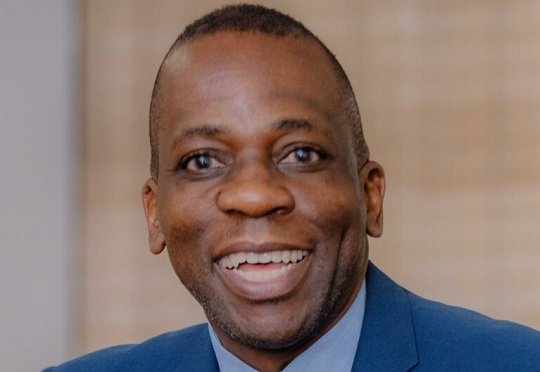By Moses Anibaba, Regional Director, British Council, Sub-Saharan Africa
Africa has the world’s youngest population, with 70% of people in sub-Saharan Africa under 30. Empowering the youth is vital for the continent’s growth and potential and is crucial for economic growth, innovation, peace, and security. These young people face challenges including education, underemployment, lack of opportunities, lack of information access, and gender inequality.
The British Council’s new Sub-Saharan Africa Strategy 2025 empowers youth in Africa through the opportunities for enablement and growth that the organisation offers to young people. This aims to help them nurture their communities and improve prospects.
The next generation is essential to the continent’s development and to global shared interests in creating a safer, healthier, and more prosperous future for us all. In contrast to ageing populations in other regions, sub-Saharan Africa’s youth represent opportunities for innovation and economic growth. The youth are key to implementing the 2030 Agenda and its role in enhancing youth development efforts, and various Sustainable Development Goals (SDGs). SDG 4 emphasizes quality education and SDG 8 addresses decent work and economic growth for youth.
We are building connections between people in the UK and sub-Saharan Africa through education and culture and opening doors for young people to fulfil their potential. Our sub-Saharan Africa strategy, refreshed to take account of changes in the social, political, and economic landscape, will help achieve exactly those connections and opportunities for young Africans. Truly fulfilling one’s potential requires access to education and networks of support, and we aim to provide that access and those networks of contacts, vital for the exchange of knowledge, information, and ideas.
A society where young Africans can thrive.
We are engaging with young people and communities to help the next generation unlock their potential, build resilience, and create stronger community networks to realise a free, fair, more prosperous, and open society where young people can thrive.
This entails creating opportunity and engagement through arts, education, and the English language, and developing connections and mutually beneficial partnerships in Africa and the UK.
The British Council is contributing to the progress of this society as follows:
building on our existing networks and deep on-the-ground engagement
continuing to develop a strong understanding of our primary audience.
through our programmes engendering greater inclusion and social cohesion in African societies
contributing to economic empowerment, innovation, and employability in Africa
enabling connections, exchange and opportunities between Africa and the UK to create strong and enduring networks with future leaders and influencers.
Our work in sub-Saharan Africa is focused on building human and social capital to help countries have a more prosperous and peaceful future. By creating opportunities and positive pathways for individuals, organisations, and systems, it becomes possible to improve young people’s prospects through the acquisition of knowledge, skills and ideas, and nurturing creativity, innovation, and connection.
To this end, we have developed a framework adapted from the Department for International Development (DFID) sustainable livelihoods model. It sets out how people draw on different assets and operate within a context shaped by different factors. These assets include human capital (education, knowledge, skills, capacity), financial capital (economic assets, development, empowerment), social capital (relations of trust and support, collective representation, common rules, participation in decision-making, leadership networks and connections), physical capital (infrastructure, tools, technology, and Natural capital (water, land, biodiversity). Applied to sub-Saharan Africa, we will see our diverse and wide-ranging areas of work come together into a strategic framework of intervention that will contribute to our overarching goal and intended outcomes.
As the UK’s cultural relations entity overseas, we occupy a unique space. We are using our expertise to connect with diverse communities and help them navigate their changing environments through mutually beneficial partnerships. With challenging times ahead and the need to engage the next generation, we can use our relationships to build understanding. Remaining relevant and connected is especially important given the complex past relationships between the UK and several countries in sub-Saharan Africa. We have an opportunity to use our relationships to win hearts and minds.
The refreshed Sub-Saharan Africa Strategy 2025 lays out our vision and purpose in a region where the operating context has shifted considerably over the last two to three years. Many countries are experiencing profound socio-political changes that have significant and far-reaching effects beyond borders. A revised strategy was crucial as the world faces new and unprecedented challenges. Our goal is to foster peaceful and prosperous societies. This new strategy crystallises our role as a valued and effective partner in sub-Saharan Africa today to help overcome the challenges of tomorrow. We will engage with the UK government to stay aligned with policy priorities and be an integral, on-the-ground component in the whole-of-government approach.
By supporting African-led priorities with British expertise, we can provide more life-changing opportunities. These include more jobs and greater stability, including for women and girls, in the UK and across Africa.
About the British Council
The British Council builds connections, understanding, and trust between people in the UK and other countries through arts and culture, education, and the English language.
The Council works in two ways – directly with individuals to transform their lives and with governments and partners to make a bigger difference for the longer term, creating benefits for millions of people all over the world.
It helps young people gain the skills, confidence, and connections they are looking for to realise their potential. We support youth to learn English, get a high-quality education, and gain internationally recognized qualifications. Our work in arts and culture stimulates creative expression and nurtures creative enterprise.
The British Council is on the ground in over 20 African countries and deliver impact working with local institutions and partners.








